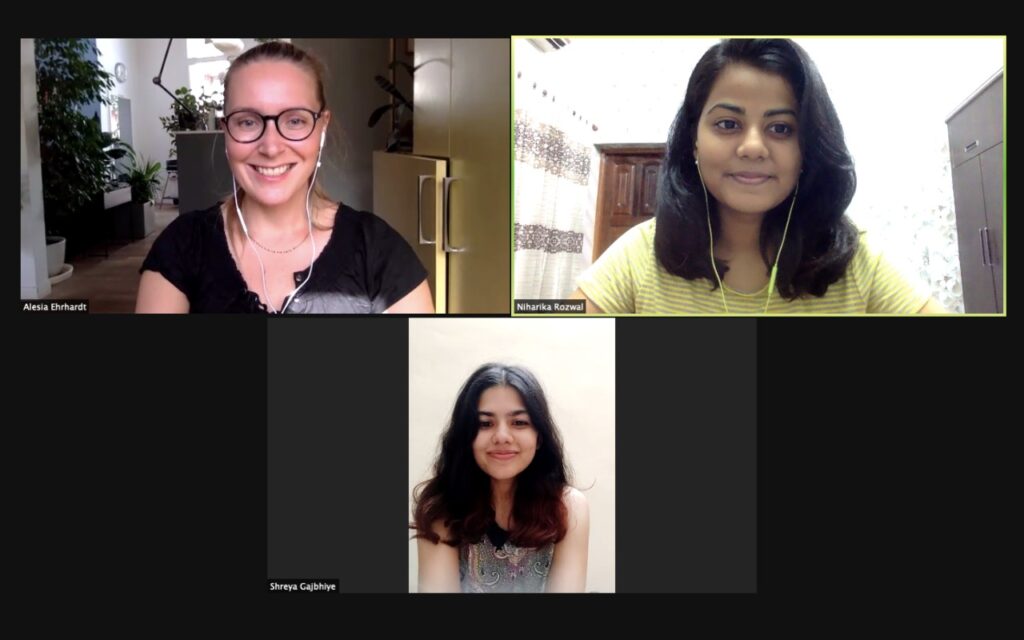In this blogpost, I interview Alesia Ehrhardt on the uses of mediation in business and start-ups, and on her success as a coach at the recent IBA-VIAC International CDRC Mediation and Negotiation Competition. Alesia studied at Technical University of Applied Sciences Wildau, Germany, where she participated in several courses I taught.
You are a “venture developer.” What is that?
A venture developer builds companies or digital products from concept to launch. It’s about transforming an idea into a specific business case. I work freelance and personally consult clients and occasionally I test my own business ideas.
I know you were exposed to mediation and negotiation skills in classes at university, where you studied management, and you have since developed these skills in many projects. How are they useful in your work as a venture developer?
They helped me to understand that creating a company is not a romanticised pursuit. Start-ups and founders are based in a fast-paced environment with a huge workload, immense expectations, and a load of emotions too. Being focused and taking the right decisions is crucial for the survival of an early-stage company.
Mediation and negotiation skills can be critical, such as filtering the right information, the ability to zoom in and out, prioritising tasks, differentiating between banal and really important problems, having sharp and cohesive communication and alignment between the founders and their team, enhancing a constructive feedback culture etc. Although this might sound self-evident, in most cases it is not.
Why do young companies in particular need these skills, and perhaps external facilitation? I have been asked to mediate and facilitate in start-ups, and have encountered escalated internal disputes there.
As mentioned, early-stage start-ups and their founders are in a very specific environment and go through certain stages of the maturity of their product and company, which brings particular challenges with it. Especially when you are a first-time founder or you are a larger founding team, let’s say of three to five people. At the beginning you certainly believe that the odds are in your favour and your company and team are going to succeed. Until suddenly you encounter problems such as: co-founder disputes, handling your interests versus your investors’ interests, perceptions of inequality regarding the equity split or work contributions, sharing and ownership of IP rights, securing a next fundraising round, managing difficult employees, and keeping your private life balanced. Being emotionally entangled in such a situation makes it difficult to think or act clearly. Some co-founders lack the ability to communicate constructive criticism to each other, so negative emotions pile up like a layered cake. With a company’s growth and further investment the pressure and outside expectations rise and I believe founders can take countermeasures to tackle these challenges. Therefore I usually recommend founders to get a facilitator involved as early as possible on a regular basis to navigate and align with your co-founder(s), even before any conflict arises. A good facilitator can do magic.
What is your experience of negotiators in the corporate world?
Interests-based negotiation is a collector’s item 😉
You have twice coached mediator teams at CDRC in Vienna, and you yourself were a student participant in the Lex Infinitum commercial mediation competition in Goa. How are these student competitions useful for personal and professional development?

It’s a source of acquiring new knowledge, skills and inspirations. I develop my coaching skills and in a way grow with the students I coach. It’s never unilateral.
Do you think that training students in these skills will change the corporate world?
Yes – but in order for it to happen holistically across industries and countries these skills need to be taught in schools and universities in many fields, not just in law programmes where you might come to expect them.
The team you coached for CDRC this year, The National Law School of India University Bangalore, won the mediator competition. Congratulations! What was the secret of your success?
I really enjoy coaching and achieving transformation within individuals, especially when it’s about “life skills” (I’d like to call mediation and negotiation skills like that) in which I genuinely believe.
________________________
To make sure you do not miss out on regular updates from the Kluwer Mediation Blog, please subscribe here.



Thanks for sharing this blog with us it really nice to me.